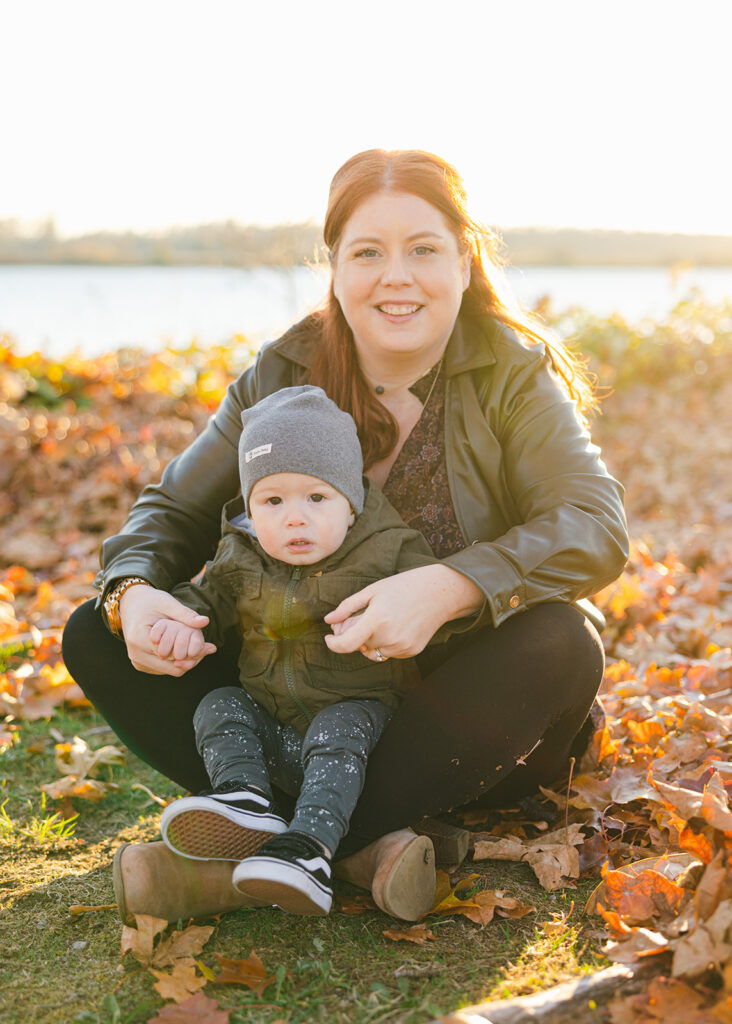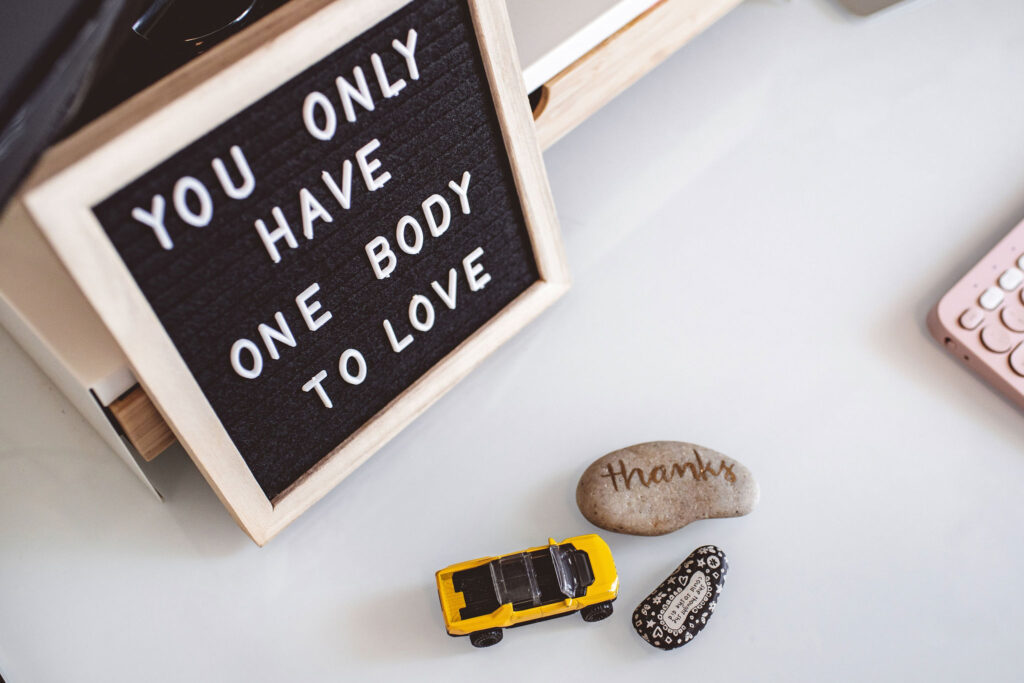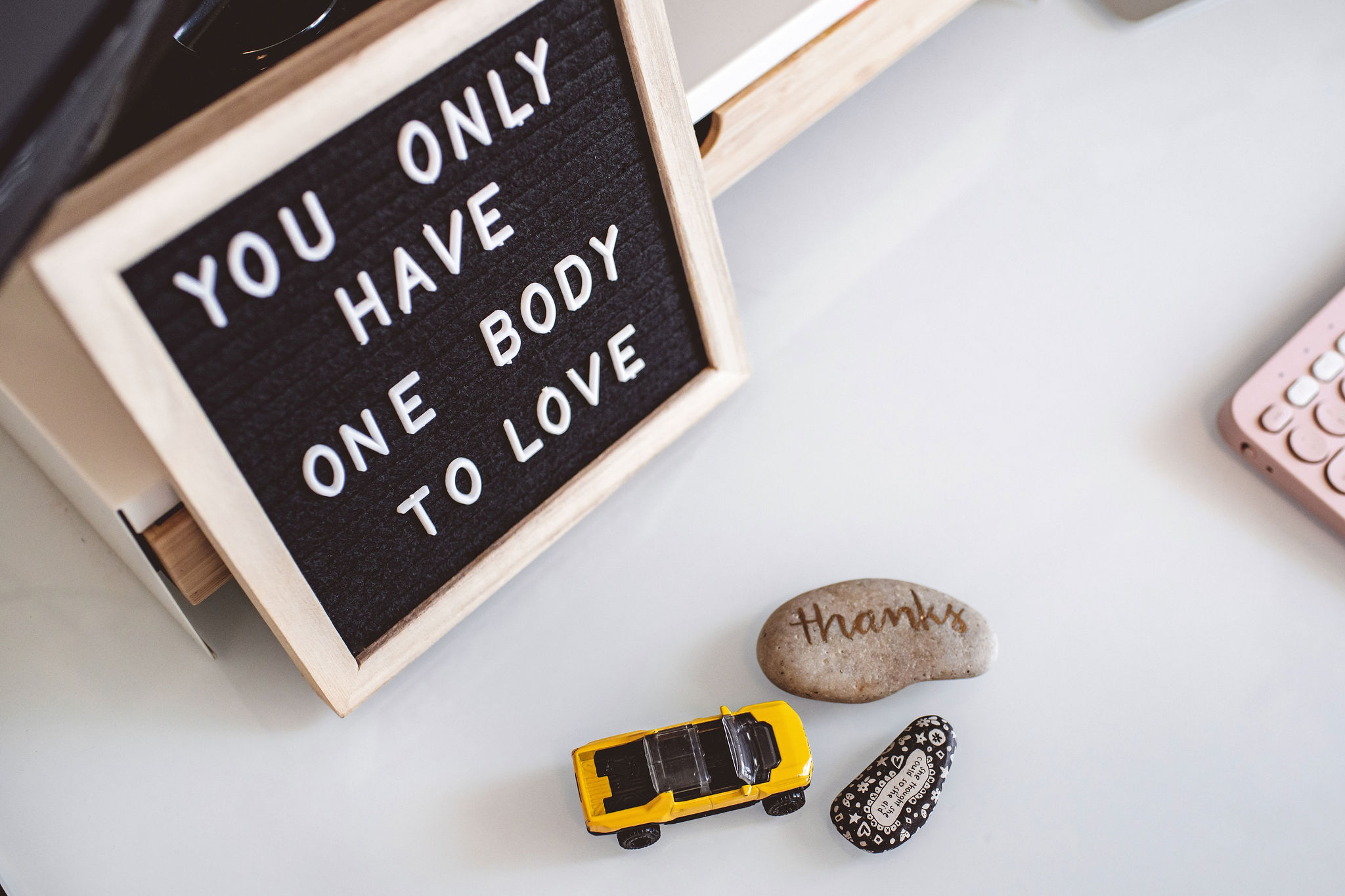Body respect can feel like a confusing idea, especially when you don’t like what you see in the mirror. Maybe you’ve tried to love your body and it just didn’t feel real. Or maybe the pressure to be positive all the time has only made you feel worse. The truth is, healing your relationship with your body doesn’t start with love. It starts with respect. And that kind of respect is possible, even on the hardest days.
Hi, I’m Dr. Meredith MacKenzie, a binge eating therapist and intuitive eating coach. If you’re struggling to care for your body without loving how it looks, you’re in the right place. Body respect can feel complicated, but it’s a path worth exploring, and you don’t have to do it perfectly to begin. If you ever need support or a place to start come find me on Instagram for daily encouragement and real talk.

Why You Don’t Have to Love Your Body to Heal
Many people think healing means loving every part of their body. But that idea can make healing feel out of reach. Love can seem too big, too far away. So you wait. You hold on to shame.
But healing doesn’t have to start with love. It can start with respect. Start with small, kind actions that support your body. Pause the criticism about how you look. Notice when you’re tired and give yourself permission to rest. Eat when you’re hungry, without guilt. Speak to yourself with a little more care and compassion.
These are all ways to show body respect. When love feels too hard, respect is enough. Respect creates space for healing. It helps you say, “I see you. I care about you.” Even without love, respect can carry you forward.
If body respect feels impossible because you’re scared of gaining weight, this blog can help. It’s a gentle step toward making peace with your body.
What Body Respect Actually Looks Like
Body respect looks like many small choices each day. Here are some ways it shows up.
- Honoring signals
You feel hungry or full. You act on that without judging. You rest when you need rest. You move your body in ways you enjoy. You don’t force it. Respect listens. - Choosing kindness
You speak kindly about yourself. You stop words that tear you down. You avoid insults in your mind. You do not shame your body. You show kindness in what you do and what you say. - Rejecting diet culture
You refuse rules that tell you what body is “good” or “bad.” You question messages that say thin is best. You know you are not less worthy because your body looks different than culture values. Body respect means you choose what feels true for you, not what others say. - Caring for your needs
You eat when you are hungry. You sleep when you need rest. You wear clothes that feel good. You ask for help when you feel pain or stress. You do things that bring comfort, not harm.
These actions may seem small, but they create real change. Body respect is not about doing everything perfectly. It’s about showing up, tuning in, and choosing care, even when it’s hard.
If loving your body feels out of reach, this episode is a gentle starting point. I share how body respect began for me, and how it can for you too.
Letting Go of the “Perfect Body Image” Goal
Growing up, you were surrounded by images of perfect bodies in media, ads, and even among friends. Those messages shaped how you saw yourself. They taught you to measure your worth by appearance and to aim for an ideal that was never meant to be reached. For many people, the pressure wasn’t just about looks. It was also tied to people-pleasing, to being seen as good, disciplined, or acceptable. But that goal is not healthy. A perfect body is not real.
Letting go means you stop chasing that goal. It means releasing the need to meet everyone else’s expectations. There may be a sense of loss. You might find yourself grieving the beliefs you once held. That is okay. You can unlearn those lies and rebuild something true. Letting go frees you. It frees your mind, and it frees your joy.
How Body Respect Supports Food Freedom
Food freedom grows from respect. When you respect your body, you stop making food the enemy. You stop rules about what you should or should not eat. You trust yourself more.
Food freedom means eating what you need when you need it. It’s about choosing food that feels good in your body, letting go of guilt, and allowing yourself to enjoy pleasure without shame. It also means not using food to numb or avoid hard feelings, but turning to other forms of care instead. Sometimes it’s saying no because your body is full or because you need rest. All choices come from respect, not fear.
When you fight body shame, you fight food shame too. When you respect your body, you respect your hunger. You respect your fullness. You respect your need for food and your right to enjoy food. That is powerful.
Learn how body respect can help you find true food freedom.
The Ongoing Practice of Body Respect
Body respect is a practice. You may need to do it every day. Or every hour. Culture will try to steal your peace. Old habits may resurface. And sometimes, difficult emotions return when you least expect them.
Here are tools to practice body respect:
- Check in
Ask yourself: “What does my body need right now?” Rest? Movement? Food? Quiet? Pick one need. - Choose kinder thoughts
When you think something harsh, pause. Then say a kinder truth. For example: “My body is doing its best.” Or “I’m grateful for what it lets me do.” - Limit harmful messages
Unfollow social media that shame your body. Avoid magazines or shows that push perfection. Choose media that feels real. - Allow feelings
Feel anger, sadness, shame, jealousy. These feelings tell you what needs healing. Let them out in safe ways. Write. Talk. Cry. Move. Then comfort yourself. - Celebrate small wins
Notice the moments when you treat your body with kindness. Maybe you ate when you were hungry, thanked your body, or wore something that felt good. These small choices matter. Celebrate them, they count. - Ask for support
Talk with a friend. Seek a therapist (hi). You do not have to do this alone. Body respect grows more easily when you feel seen and safe.
Body respect doesn’t have to look perfect to be real. Every small choice to care for yourself, even when it feels hard, is part of the process. Over time, those small acts build something steady. Something honest. Something that can hold you, even on the tough days.
If body respect is part of your healing, mindful eating can support that, but not in the way diet culture tells you. This blog clears up the myths and shows what mindful eating really looks like when it’s rooted in self-trust, not control.

Body Respect Isn’t Perfect, It’s Personal
Body respect is not a finish line. It’s a daily choice to show up with care, even when it feels hard. Some days will feel easier than others. Some days, you’ll forget. That’s okay. What matters is that you keep returning to yourself with softness. You are allowed to take your time. You are allowed to feel how you feel. And through it all, your body is still worthy of respect.
If you’re working on body respect and feel caught between wanting change and learning to care for yourself as you are, you’re not alone. One Body To Love, my group coaching program, offers a supportive space to unlearn body shame, reconnect with your needs, and practice food freedom in real life, not just in theory.
Prefer to start small? Food Freedom in a Weekend gives you simple, grounded tools to ease out of all-or-nothing eating and move toward self-trust.
If you’re looking for deeper healing, my 1:1 coaching offers a safe space to explore your relationship with food, body, and self with compassion.
You can also check out free resources like my podcast, YouTube channel. If you’re not sure where to start, you can book a free discovery call and we can figure it out together. However you begin, your body is welcome here.
